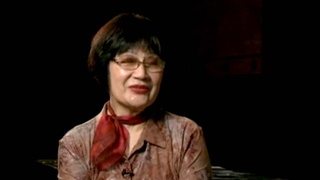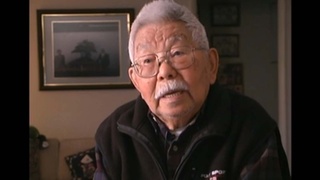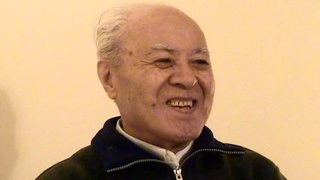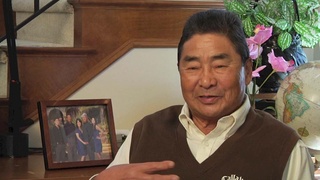Interviews
Her father bought her mother American clothes after she arrived from Japan
And so she arrived in Seattle. So I said, “What was the first thing that Dad did?” And she said, “Well the first thing he did was he took me to a department store so that – because he wanted me...you know, I was wearing a kimono and zori or geta,” and he wanted to buy her some American clothes and shoes, and so that’s how – and so the first – from the – you know – after she got off the ship and they went straight to the department store to get some American clothes and shoes, she said.
Date: August 7, 2018
Location: California, US
Interviewer: Sharon Yamato
Contributed by: Watase Media Arts Center, Japanese American National Museum
Explore More Videos

Coming to America
(b.1943) Shin-issei grand master of taiko; founded San Francisco Taiko Dojo in 1968.

The reason for coming to Japan
(b. 1967) Hawai`i-born professional fighter in Japan

Treatment of Japanese Paraguayans during World War II (Spanish)
Nisei Paraguayan, Researcher

Reason to come back to Canada in 1954
(b. 1922) Canadian Nisei who was unable to return to Canada from Japan until 1952

Avoiding the Japanese military
(1914-2004) Nisei Bonsai master in the United States

Tango makes him to stay in Argentina (Spanish)
(1925-2014) La Plata Hochi, Journalist



Government urged Japanese Canadians to go to Japan
(b. 1928) Doctor. Former Chair of the Japanese Canadian Redress Foundation.


On returning to post-war Peru (Japanese)
(b. 1948) Executive Director of Amano Museum




